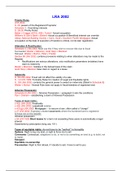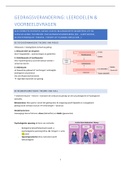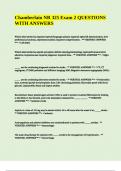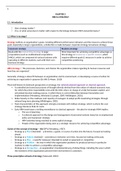Summary
Summary GDL Land Law Exam Revision Notes
- Module
- Public Law
- Institution
- City University (City)
GDL Land Law Exam Revision notes Comprehensive easy to follow revision notes that cover the essential legislation and cases for each topic. Topics covered: Land Registration Act 2002, Priority Rules, Indemnity, Adverse Possession, Leases, Proprietary Estoppel, Mortgages, Co-ownership, Trusts of La...
[Show more]






